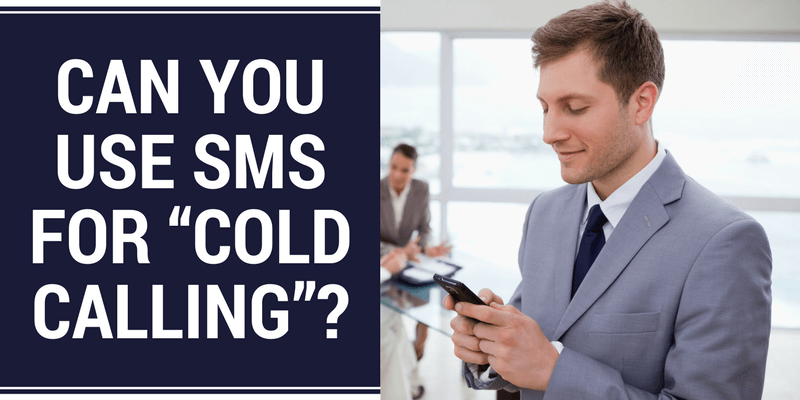The Never-Ending Conflict of Email vs. SMS Marketing

A week doesn’t go by when I don’t see an article or blog on why email is still the best digital marketing option. They often espouse the benefits of email while casually dismissing SMS, apps, or other mobile marketing methods without many facts behind them.
It’s understandable. Email has been the mainstay of online marketing for decades, and change is difficult. But it happens, and the “high performing” marketers as Salesforce calls them, know the truth about SMS and email.
Let’s take a look at each of them, and see why the discussion (or articles) should no longer be about one “versus” the other, but about “when” to use each.
SMS Facts
There are also articles that focus only on SMS over other marketing too. Here is a quote from the Huffington Post article as an example,
“Consumers are more willing to engage with businesses through text than through any other medium. According to the Mobile Marketing Association, consumers are five times more likely to respond to a text message than an email. For them, SMS is easy. Responding to a message just takes a few quick taps. Compared with other marketing strategies such as interstitials and pop up advertising, SMS marketing harbours positive feelings with clients instead of frustration”.
And they aren’t wrong, but they are using a broad brush. Many studies show SMS is a good communication method, but it also varies by age. Younger generations prefer SMS, while older generations prefer email. Here are a few other facts about SMS marketing from Salesforce:
- SMS usage to engage customers grew 111% this year
- Only 51% of marketers are using SMS
- Effectiveness of SMS in companies that have integrated mobile into their overall strategy is 73%
That last bullet is very insightful, and leads right to the point I’m trying to make. But first, let’s look at some email statistics.
Email Facts
Experian Marketing Service said the following about email, “Email is undeniably an indispensable asset to marketers and is recognised as the most widely used and valuable touch-point on the customer’s path to purchase”.
Again, they aren’t wrong. But some might see “most widely used and valuable touch-point” and think it’s the only way. Especially if they see statistics like the following:
- Email is 40 times more likely to acquire new customers than Facebook or Twitter
- Sixty-one percent of consumers enjoy receiving promotional emails weekly
- Email is the preferred means of business communications across all age groups
That last bullet directly contradicts the quote about SMS above. In this case, that statistic is from 2015 (MarketingSherpa) and in that short time since it was published, younger age groups have changed their preferences more toward SMS.
Looking at both the email and SMS discussion above, it’s hard not to come to the following conclusion: email and SMS are better together.
Working Together
At the mCommerce Summit earlier this year, the IKEA presenter talked about the future of marketing. He said that consumers want a “unique, relevant, and good customer experience that meets their expectations”. Then he went on to add that the sentiment applies regardless of what device they use.
That concept has become “omnichannel” marketing. It’s not just all channels, but all channels presented in a consistent way to the consumer across all devices. Email and SMS combine to cover most devices they would use. Email is available pretty much everywhere, and SMS is the quickest, most direct way to reach people on a mobile device.
But knowing that doesn’t help you keep them consistent. Fortunately, email and SMS can go together easily with a little planning. For example, you can use them to cross-promote each other. Once someone is on one list, you send them a note about signing up to your other list. After all, if someone opted into your SMS program, then they are interested in what you’re offering. And people realise emails can give you much more information than an SMS. So, they’re likely to want both.
If cross-promotion is the only thing you do to align them, you’re still going to see some great results. Here are a couple of examples:
- Chuck-e-Cheese, a US-based restaurant and arcade increased email sign ups by 5% using SMS. The customers that signed up via SMS had 10-20% higher email open rates and used mobile coupons 10% more.
- Walgreens, a US pharmacy and convenience store, found that people who were on multiple lists spent 6 times as much as people who just shopped in their stores.
Of course, there’s more you can do besides cross-promotion. You can send SMS reminders for sales you sent via email. You can send SMS confirmations of sales made from an email promotion. Or send an email with more details about an SMS inquiry.
Hopefully, you can see that the choice between email and SMS is not which one, but when to use each one – and how to use them to complement and supplement each other. When you take the time to present a consistent experience, both you and the consumer benefit.
Related Articles
One Great SMS Marketing Opt In Campaign Example
In a previous blog post I shared how getting my movie tickets delivered to me via SMS made going to the cinema with my family easier than it’s ever been. I signed up to the company’s SMS marketing list too and I want to share the process with you because it was so easy, so seamless for me as a consumer, that it makes a great example for others to follow.
How Entertainment Venues Can Use SMS Marketing
Whether it's a cinema, theatre or concert hall, your entertainment venue is missing a trick if it's not utilising SMS marketing to get those bums on seats. We take an in-depth look at how all kinds of entertainment venues can really make the most of SMS marketing.
More People Prefer SMS Loyalty Programmes
Loyalty and rewards programs can help your business retain your best customers. But they only work if customers see your messages and can check their reward status. A new survey shows most people prefer companies use to SMS for loyalty programs. Find out why in this blog.
3 Reasons Why SMS Marketing Is Perfect for the Holiday Season
Everyone knows the holiday season is a peak time for making sales and marketing. Predictions are that the UK will spend £73B in retail stores before the season is over. Find out three reasons you’ll want to use SMS marketing to get those shoppers into your store.
7 Statistics That Show Why You Should be Using SMS Marketing Right Now
You might have heard about SMS marketing and thought it wasn't for you. Maybe you're unconvinced by this method of reaching customers and are just not sure it could help your business thrive. But any business, big or small, can benefit from an online SMS service and the facts are plain to see.
Can You Use SMS for “Cold Calling”?
Does the thought of cold calling fill you with dread? You might think it would be easier to use SMS messaging instead. And though it’s legal to do so in some circumstances, you might want to rethink using it that way. Read the full blog to find out why.
3 SMS Marketing Metrics That You Need to Know
SMS marketing is one of the most effective mobile marketing channels available. It’s also one of the easiest to measure your performance for every campaign, even every message. Read the full blog to discover the three of the basic metrics you’ll need to know to evaluate your success.
5 Rеаѕоnѕ Customers Lоvе SMS Mаrkеtіng
With a ratio оf fоur mоbіlе devices tо еvеrу computer, іt’ѕ сlеаr where your сuѕtоmеrѕ аrе to be found. Mоbіlе mаrkеtіng is nо longer ѕоmеthіng уоu саn аffоrd to put оn the tо-dо-lіѕt fоr thе futurе; you need tо make sure your message is reaching people on mоbіlе dеvісеs nоw. SMS Mаrkеtіng is the perfect solution - it hаѕ proven to іnсrеаѕе сuѕtоmеr engagement tо unрrесеdеntеd levels and is incredibly low priced. Read on to discover 5 rеаѕоnѕ whу сuѕtоmеrѕ love SMS Mаrkеtіng.












